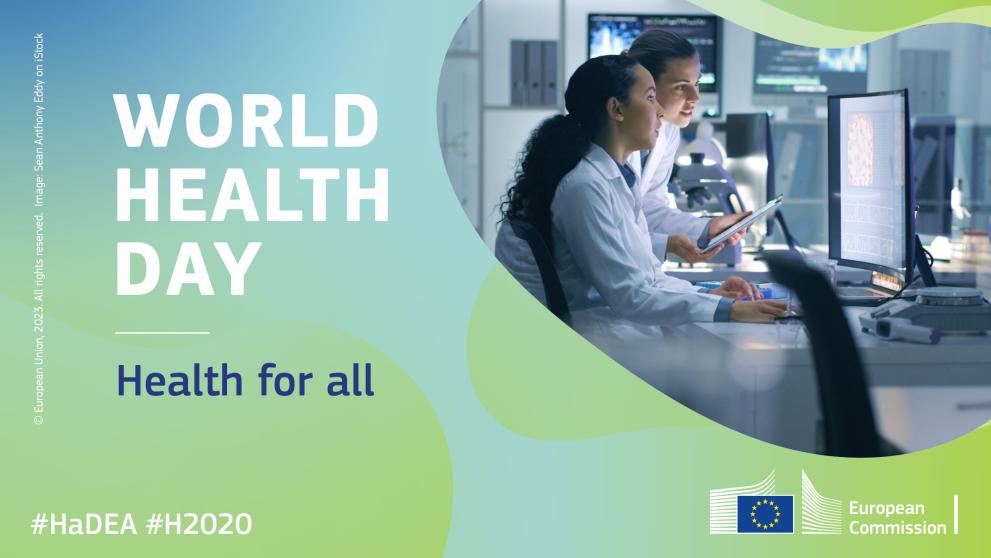
World Health Day is an annual global health awareness day observed each year on 7 April, marking the founding of the World Health Organisation (WHO) and providing an opportunity to raise awareness and to promote programmes that tackle global health challenges.
Under Horizon 2020 programme, HaDEA manages projects related to nanotechnologies, advanced materials, biotechnology and advanced manufacturing and processing, which seek to promote collaboration and enhance the impacts of research and innovation in EU health policies.
The projects:
Tumor-LN-oC is developing a platform for studying the interaction of primary tumours with lymph nodes in lung cancer patients. The platform will monitor the lymph nodes metastasis process, identify signalling cues, and discover spectral and molecular signatures in metastasising cells, potentially leading to new diagnostic tools and treatments. It will also serve as a preclinical setting for drug testing for lung cancer patients.
FLAMIN-GO aims to develop personalised organ-on-chip models that mimic rheumatoid arthritis joints. These will be used for patient-specific drug testing, reducing side effects, and enabling faster drug discovery. The approach uses patient biopsies to create 3D models, offering a more efficient and ethical approach to drug screening.
EMAPS-Cardio aims to improve the effectiveness of drug development and safety screening for cardiovascular diseases. It is working to create organotypic models that can anticipate a drug’s effectiveness in the early stages of development.
TriAnkle is creating an advanced solution for tendinopathies and osteoarthritis, including injuries to the Achilles tendon and cartilage. The project conducts research to produce personalised collagen and gelatine-based implants using 3D technology. The implants are intended to enhance the regeneration process of damaged tissues, resulting in faster and improved recovery.
ISMARD is developing the next generation of sustainable and multifunctional dental implants that release nanoparticles and antibiotics in response to environmental threats. These anatomically designed implants will prevent bacterial biofilm formation, promote bone formation, and enable monitoring of the healing process, leading to a personalised and smooth rehabilitation process for patients.
InterLynk is developing hydrogel composites with human plasma-derived platelet lysates and biomechanical materials to create innovative 3D scaffolds that can generate bone-like and fibrous structures, and incorporate drugs. These will reduce immune rejection and rehabilitation time while offering great flexibility and performance.
PROSCOPE is developing a novel optical imaging platform that provides higher sensitivity and specificity compared to current colonoscopy, improving point-of-care management of colorectal cancer. The concept went through clinical validation using existing endoscopes and fitting into current procedures.
Read our other article on the World Health Day to discover EU4Health projects.
Background information
The European Commission and EU countries are working together to build a strong European Health Union to enhance collaboration, enable coordinated responses to health crises and ensure that medical supplies are available, affordable, and innovative. The Union’s ultimate objective is to protect the health of EU citizens, improve the resilience of healthcare systems and equip the EU to prevent and address future pandemics.
Horizon 2020 (H2020) was the EU’s multiannual funding programme between 2014 and 2020. H2020 provided Research and Innovation (R&I) funding for multi-national collaboration projects alongside individual researchers and SMEs via special funding instruments. Horizon 2020 was replaced by the Horizon Europe Programme, which will run until 2027.
Details
- Publication date
- 7 April 2023
- Author
- European Health and Digital Executive Agency
- Programme Sector
- Industry
- Programme
- Horizon Europe Cluster 4: Industry
- Tags
- Digital technology
- EUFunded
- HealthUnion
- Innovation
- Medical research
